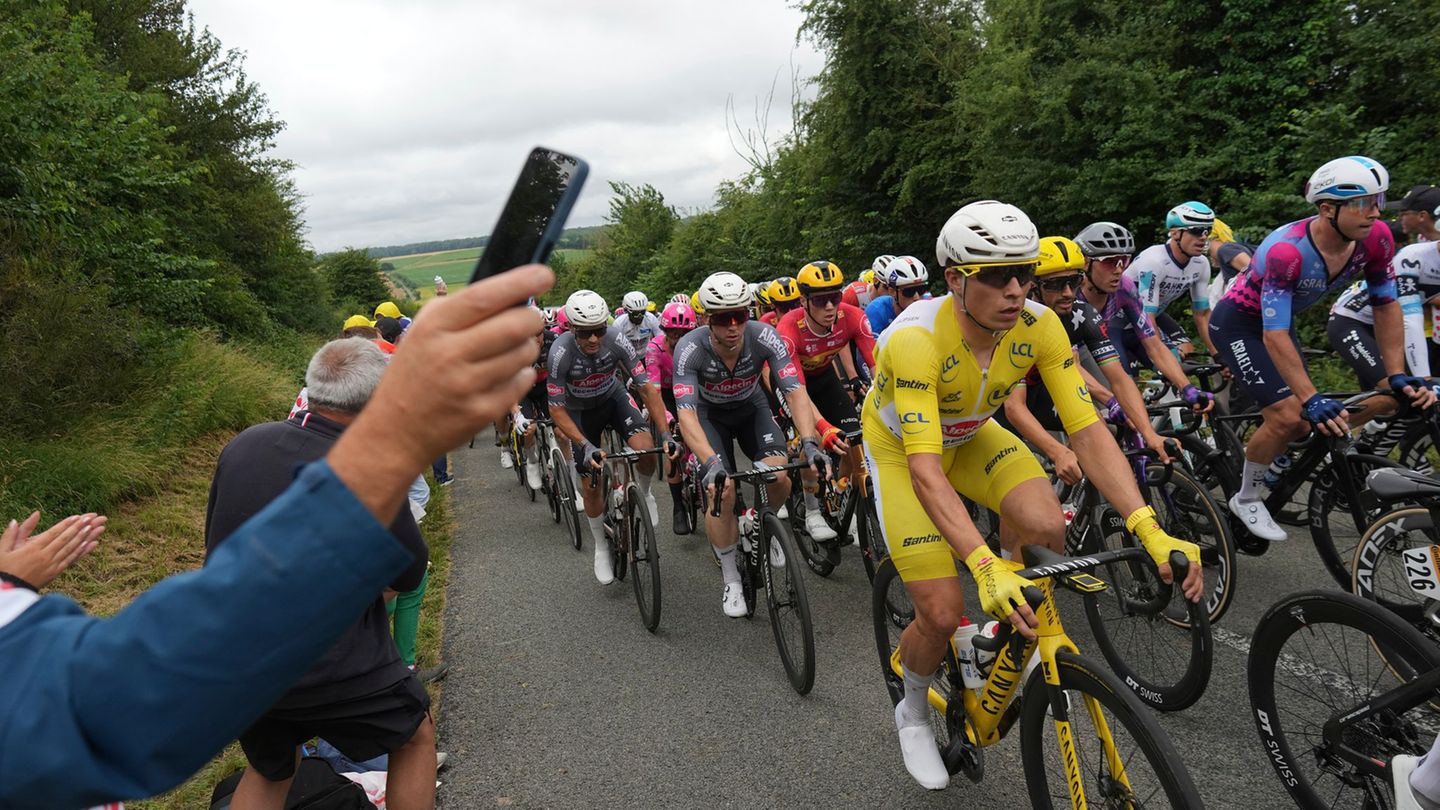Leon Windscheid in an interview
Why he deviated from his life plan
Copy the current link
“Who Wants to Be a Millionaire?” winner Dr. Leon Windscheid uses his success to focus on taboo topics such as depression and inclusion.
By winning millions on “Who Wants to Be a Millionaire?” he became known, now Dr. Leon Windscheid (35) is active as a speaker, event manager and moderator. He talks to comedian Atze Schröder (59) in the podcast “Betreutes Fühlen” about, among other things, the taboo topic of depression. Inclusion is also important to him, as he explains in an interview while visiting an Aktion Mensch funding project: “I have a few topics that concern me a lot. Mental health is one thing. A society that sticks together and doesn’t exclude is another . I’m happy to advocate for that.”
Dr. Leon Windscheid: We are both in the same agency and someone there had the idea of putting us on a podcast together. When I told my teacher parents that I was doing a podcast with Atze Schröder, which most people associate with his appearances on RTL, they wanted to disinherit me at first. When they heard the first episode, it quickly became clear: I was talking to the person behind the stage character Atze Schröder.
Why do you complement each other well, what characterizes your collaboration?
Windscheid: Atze has the experience and the stories from life and I have the studies and scientific explanations. When you notice that Atze suddenly quotes Seneca, you realize that the combination of both of us has total added value. He always says that we were strangers at the beginning, but I always had the feeling that we were compatible from the start. A real friendship has now developed.
In the podcast you also talk about not-so-easy topics like depression or anxiety – why is it so important to talk about sensitive topics and your own feelings?
Windscheid: Unfortunately, psychological problems are often still a very taboo topic. I believe we need to break down this stigma around mental illnesses like alcoholism and depression. This also includes meeting people where they are. If we can do something to change this by speaking openly about these issues, we would be happy to do so.
Do you think your podcast has an impact on how people think about certain topics? What feedback do you get?
Windscheid: Ralph recently wrote to me. Manager, head of a company. He wrestled with himself for a long time and finally stood up in front of his team and said that he was going to undergo therapy because he had mental problems. Ralph said our podcast encouraged him to be this open. Something like that always affects me. Because men in Germany in particular like to get tough.
You have now visited a funding project run by Aktion Mensch in Rhede, the non-profit Herbalind pillow manufacturer. What was your impression of this inclusive company?
Windscheid: Great! Really. Everyone worked together here, produced a great product and you really immediately had a team feeling. With or without disabilities, that wasn’t the main focus, but rather: producing the best quality and sticking together.
Do you have contact with people with disabilities yourself? Why is this topic important to you?
Windscheid: My aunt was born with Down syndrome. So there have always been points of contact in my life. The topic means a lot to me because as a psychologist I know how important connection is to people. But in our society I often have the feeling that people are excluded. Do something about it that counts!
Do you see it as an obligation for you to get involved in important social issues as a celebrity?
Windscheid: No, you are not obliged. I have a few topics that really bother me. Mental health is one. A society that sticks together and does not exclude is another. I like to advocate for that.
Profits – as with Aktion Mensch – enable people to make their dreams come true. What do you think your life would be like today if you hadn’t won the million from Günther Jauch almost ten years ago?
Windscheid: I recently found a document on my computer from 2014 called “Leon’s Life Plan.” It said, “You finish your studies, then you go to McKinsey and get your doctorate. Then you go back to a top university abroad, and then you go full-time into management consulting.” I am very grateful for the win back then for the fact that, as the child of two teachers, I was able to put safety concerns aside and dare to do something that made my heart soar.
You invested your winnings in, among other things, a boat. How did this come about and how are things going with the event ship MS Günther?
Windscheid: At the time, everyone advised me against it. But when the friend I did this with and I saw the future MS Günther, we were immediately sure that this would be the ship. Today it is doing better than ever as an event and cultural location. There are around 40 employees working there and we are fully booked until St. Neverday.
As an entrepreneur, television presenter, podcast host, author and entertainer, you are a real all-rounder. What plans and goals do you have for the future?
Windscheid: To be honest, I would like to just continue as I have in the last few years and months. My new live program “Everything is perfect” will start in November, which I’m really looking forward to. Atze always says so beautifully that we are lucky that it doesn’t feel like work at all, and I notice that every day. It’s always great when I sense that people are interested in psychology and are interested in communication and facts.
SpotOnNews
Source: Stern
I am an author and journalist who has worked in the entertainment industry for over a decade. I currently work as a news editor at a major news website, and my focus is on covering the latest trends in entertainment. I also write occasional pieces for other outlets, and have authored two books about the entertainment industry.




